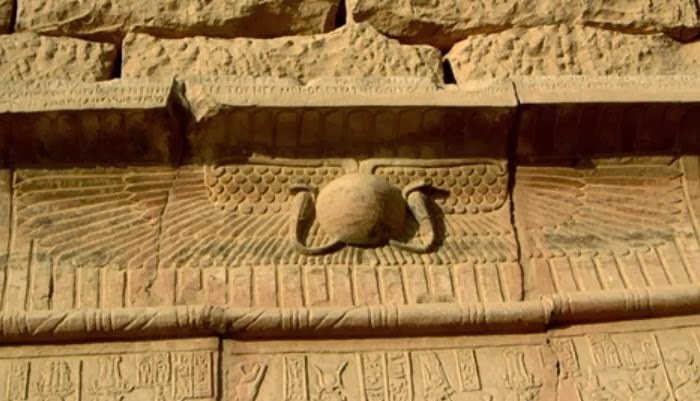
of Sobek at Kom Ombo [Credit: dharter]
The Tourism and Antiquities Police (TAP) discovered the relief within the walls of an underground, ancient tomb. It was recovered today in coordination with the Ministry of State Antiquities (MSA), according to minister Mohamed Ibrahim.
Mohamed Abdel Maqsoud, Head of the Ancient Egyptian Antiquities Section at the MSA, said that the relief is 40 cm tall and 20cm large, and engraved with four lines of Greek text, with a winged sun disk displayed at the top. The relief is now under restoration for future display in the town's storage museum.
The tomb is in a very poor state of preservation, but it was reported to contain remains of human skeletons and bones as well as clay pots and fragments.
Abdel Maqsoud believes that the tomb could be part of a Graeco-Roman necropolis, or city of the dead, that has since been built over and turned into a residential area.
The city of Al-Qantara East is located on the eastern side of the Suez Canal, about 160 kilometers northeast of Cairo and 50 kilometers south of Port Said.
Al-Qantara East has a rich history, dating back to the pharaonic era. Ahmose I, a pharaoh who founded the 18th century, waged many important wars in the area, most notably against the Hyksos, Seti, and Ramses II.
In modern times, it was the site of numerous World War I battles between the Allies and Turkish forces, as well the main base of the Australian Light Horse operations in Sinai from 1916 until 1920.
It was also the site of a massive warehouse and hospital centre, which were used again in World War II.
The city was captured by Israel during the 1967 War, but subsequently won back in 1973 after the 6 October War.
Author: Nevine El-Aref | Source: Ahram Online [December 02, 2013]